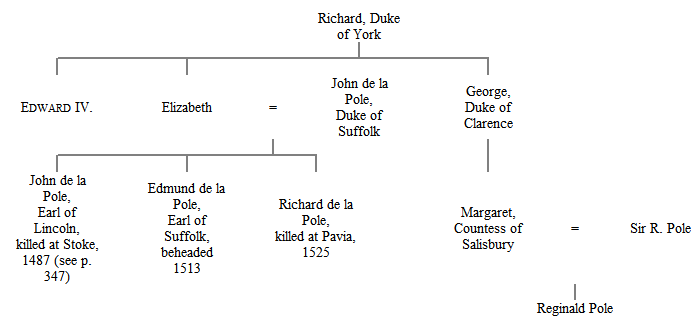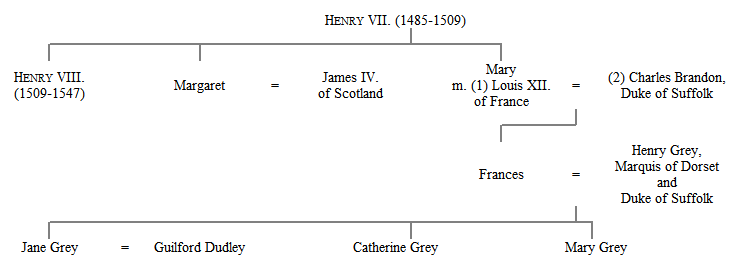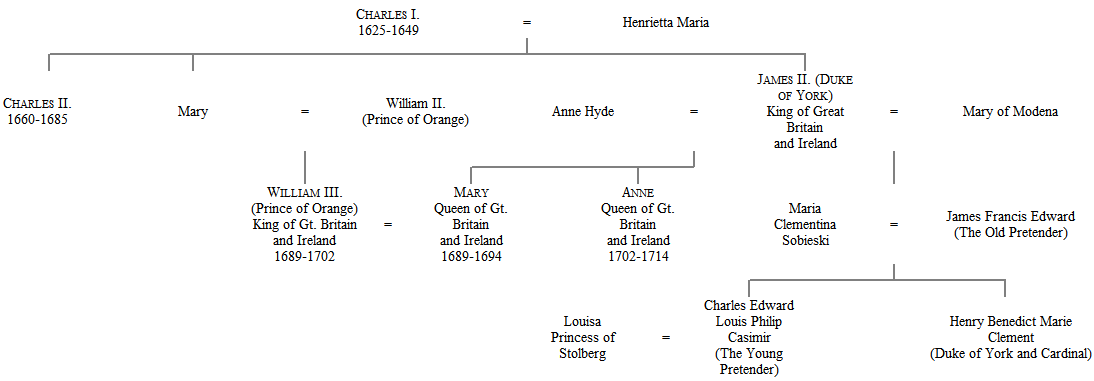 полная версия
полная версияA Student's History of England, v. 2: 1509-1689
Ranke, L. English History (English translation). Vol. iii. p. 310-vol. iv. p. 528.
Airy, O. The English Restoration and Louis XIV.
Christie, W. D. Life of A. A. Cooper, first Earl of Shaftesbury.
Macaulay, Lord. History of England from the Accession of James II. Vols. i. and ii.
Hallam, H. Constitutional History. Chapters XI. – XIV.
Mahan, A. T. Influence of the Sea-power upon History. Chapters I. – III.
Lodge, R. The Political History of England. Vol. viii. From the Restoration to the Death of William III. (1660-1702).
1
i. e. a Legate sent from the Pope's side, and therefore having power to speak almost with full Papal authority.
2
There were two Convocations, of the two provinces of Canterbury and York, but the former was so much more important that it is usually spoken of simply as Convocation.
3
The Charterhouse here means the house of the Carthusians.
4
Shrines were receptacles above ground of the bodies of saints. That of Edward the Confessor at Westminster was rebuilt by queen Mary, and that of St. Alban at St. Albans in recent times. These two are the only shrines now to be seen in England.
5
Genealogy of the de la Poles and Poles: —

6
A Bill of attainder was brought into one or other of the Houses of Parliament, and became law, like any other Act of Parliament, after it had passed both Houses and received the Royal assent. Its object was condemnation to death, and, as the legislative powers of Parliament were unlimited, it need not be supported by the production of evidence, unless Parliament chose to ask for it. Henry VIII. preferred this mode of getting rid of ministers with whom he was dissatisfied to the old way of impeachment; as in an impeachment (see p. 262) there was at least the semblance of a judicial proceeding, the Commons appearing as accusers, and the Lords as judges.
7
James's foreboding was not realised, because Mary married a Stuart.
8
Genealogy of the children of Henry VIII.: —

9
Genealogy of the Greys: —

10
The 19th is the date of Machyn's contemporary diary; but other authorities make it the 17th or 18th.
11
The most noteworthy of these alterations was the amalgamation of the forms used respectively in the two Prayer Books of Edward VI. at the administration of the Communion (see p. 418).
12
Genealogy of the last Valois kings of France: —

13
Genealogy of the Guises: —

14
Probably from Eidgenossen, the name of the Swiss Confederates, because the first Protestants who appeared at Geneva came from Switzerland, and no French-speaking mouth could pronounce such a word as 'Eidgenossen.'
15
Genealogy of Mary and Darnley: —

16
A subsidy was a tax on lands and goods voted by Parliament to the Crown, resembling in many respects the modern income-tax.
17
Magellan died on the way, though his ship completed the voyage round the world.
18
'Armada' was the Spanish name for any armed fleet.
19
A place near Cadiz where the Duke's residence was.
20
i. e. to establish the right of the subjects to possess their property.
21
A Tulchan was a stuffed calf's skin set by a cow to induce her to give her milk freely.
22
'Law,' in the Lowlands of Scotland, means a solitary hill.
23
An ordinance was at this time in all respects similar to an Act of Parliament, except that it did not receive the Royal assent. In the middle ages an ordinance was exactly the reverse, being issued by the King without Parliamentary approval.
24
The name 'Adjutator,' often given to these men, is undoubtedly a mere blunder. The use of the verb 'to agitate' in the sense of 'to act,' and of the noun 'agitator,' in the sense of an agent, is now obsolete.
25
Cromwell did not hold that, in fighting against the king, he had himself been assailing the civil institutions of the country. In his eyes, as in the eyes of all others on his side, the king was the aggressor, attacking those institutions, and war against him was therefore defensive, being waged to save the most important part of them from destruction.
26
A treaty then meant a negotiation, not, as now, the document which results from a successful negotiation.
27
Genealogy of the surviving children of Philip IV: —

28
Two Christian names were exceedingly rare in the seventeenth century.
29
In the time of James I. the usual interest was 10 per cent. The Long Parliament paid 8.
30
The right of pardon allows the king to remit the consequences to a particular person of a sentence passed on him. The right of dispensation allows him to remit beforehand the consequences of a breach of a law either to such persons as are named, or to all persons generally who may commit such a breach.
31
Genealogy of some of the descendants of Charles I.: —

32
By the Test Act of 1673 offices only were closed to the Catholics (see p. 607); the oath of supremacy, which had to be taken by every member of the House of Commons, being held sufficient to exclude them from that Assembly. Peers might sit in the House of Lords without taking the oath.
33
Scott's Old Mortality is founded on these events.
34
Because the interviews took place in the king's closet, or private room.





